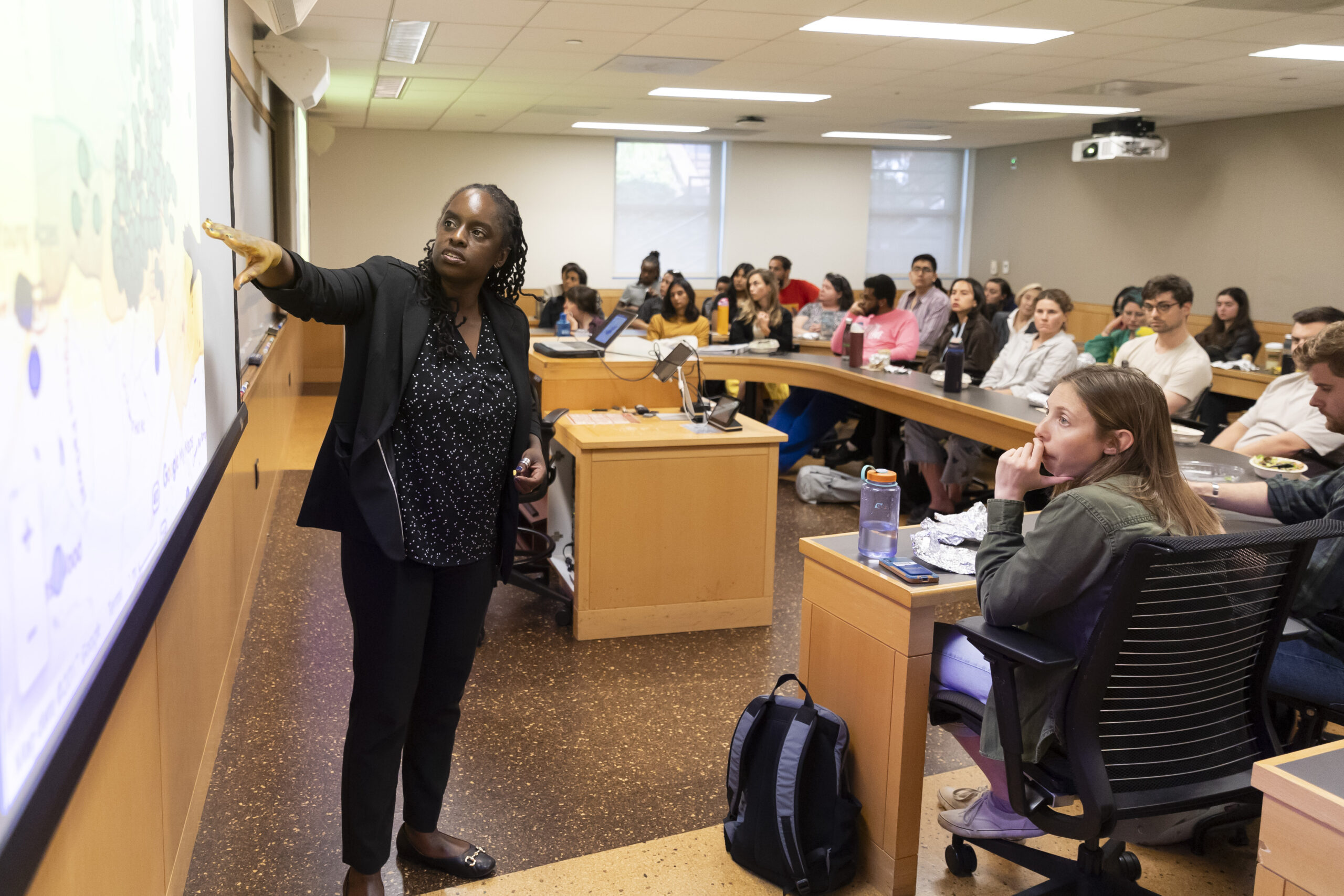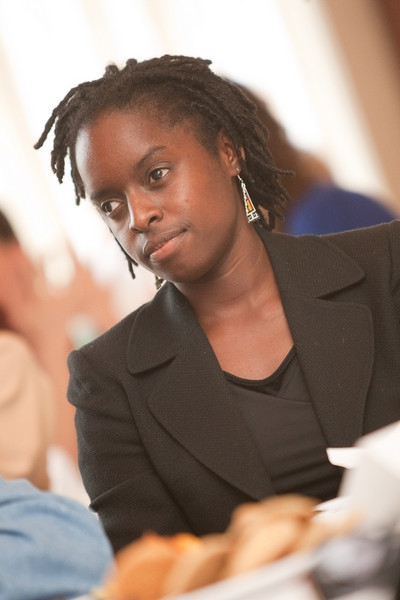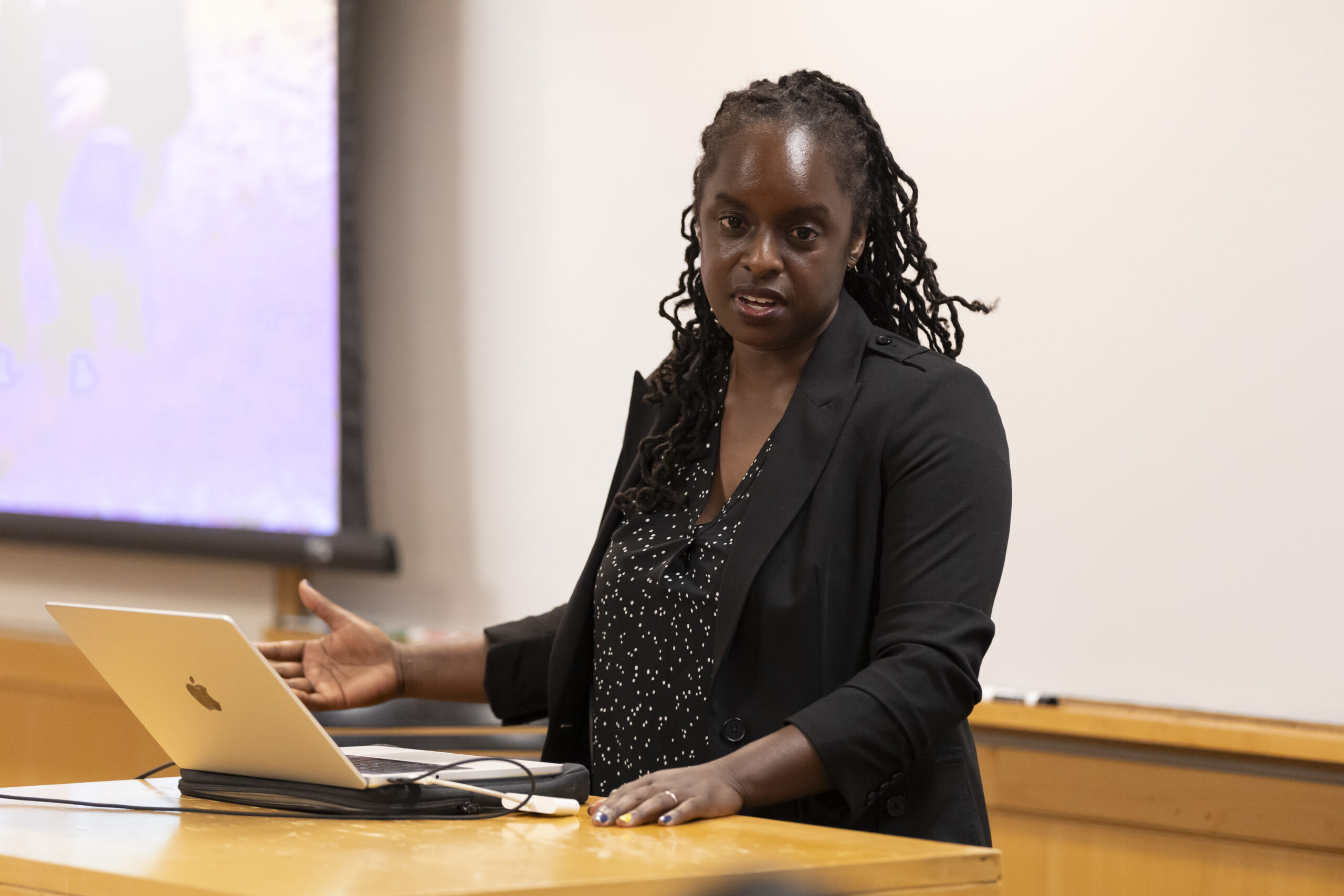
By Hannah Wittman
Fifteen years after graduating from UC Berkeley Law, Atteeyah Hollie ’10 still makes time to return to campus. Not out of obligation, she notes, but out of deep gratitude for the place that shaped her into the lawyer and leader she is today.

As deputy director of the Southern Center for Human Rights (SCHR) and head of its Impact Litigation Unit, Hollie leads transformative legal work across Georgia: challenging inhumane prison conditions, working to end extreme sentencing, and defending the right to counsel. Amid litigation deadlines and advocacy campaigns, she still carves out time to speak to students in the law school’s Death Penalty Clinic.
That sense of shared purpose runs deep. Hollie first encountered SCHR during a post-college fellowship. What began as a nine-month internship turned into five years as an investigator, cementing her commitment to public defense and systemic change. She came to law school with a clear goal: to return to SCHR as a lawyer.
She made good on that commitment — and then some.
At UC Berkeley Law, Hollie immersed herself in the Death Penalty Clinic. She worked on complex capital cases in Alabama, developed lasting relationships with faculty and peers, and was awarded the prestigious Sax Prize for Excellence in Clinical Advocacy. In her acceptance speech, she described the clinic as “a gift” and credited it with crystallizing her identity as a lawyer.
“Being in the clinic gave me the opportunity to meet some of the most courageous people I’ve ever encountered — people facing execution,” Hollie says. “And I was surrounded by others at Berkeley who were similarly committed to social justice, who were confronting and driving this work in inspiring ways. It was an experience I’ll never forget.”
Return engagements
Each year, she returns to the Death Penalty Clinic — not because she has to, she explains, but because it still feels like home. Hollie lectures, meets with students, and shares lessons from the frontlines, as she did again during another recent visit.
“As much as Lis and Ty [Elisabeth Semel and Ty Alper, the clinic’s co-directors] talk about what I give to the clinic, I selfishly feel like I leave with so much more,” she says. “The students are thinking about social change and dignity in ways you don’t typically hear. It’s invigorating.”

Hollie sees these visits not as obligations, but as gifts — opportunities to stay connected to the place and the people who helped shape her and continue to support her.
“Berkeley gave me so much,” she says. “We need people coming in after us who know they have a community around them. That they’re not alone in doing this work.”
Hollie is candid about the emotional weight of the work, and about how what sustains her is community — especially the one that began at UC Berkeley Law. “Even now, more than 15 years out, I consider Lis, Ty, and Mridula [Mridula Raman, the clinic’s deputy director] part of my community and circle,” she says. “Having people like that in your corner is a big motivator to keep going.”
She also draws strength from her clients. “They are some of the most brilliant, insightful people I’ve ever met,” Hollie says. “They’re true collaborators in these cases. Our job is to ensure they’re never sidelined in their own fight for liberation.”
For students considering clinic work or exploring public interest law, Hollie’s advice is simple: Do it.
“It’s hard to imagine finishing law school responsibly without that experience,” she says. “Clinics give you a grounding in the real impact of the law — on people’s lives — and they give you the tools to make a difference. Not just to build skills, but to advance the work.”